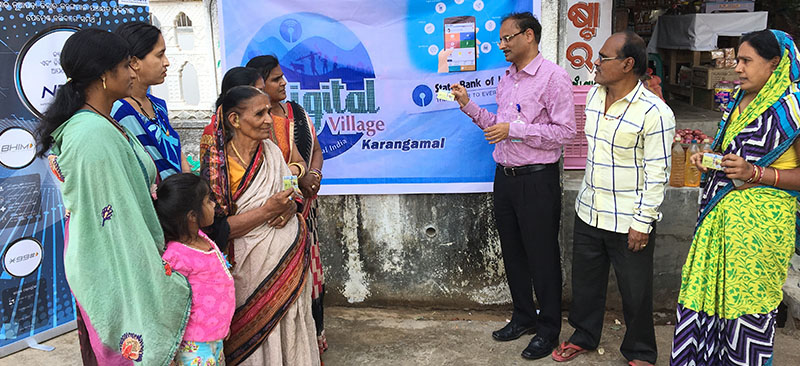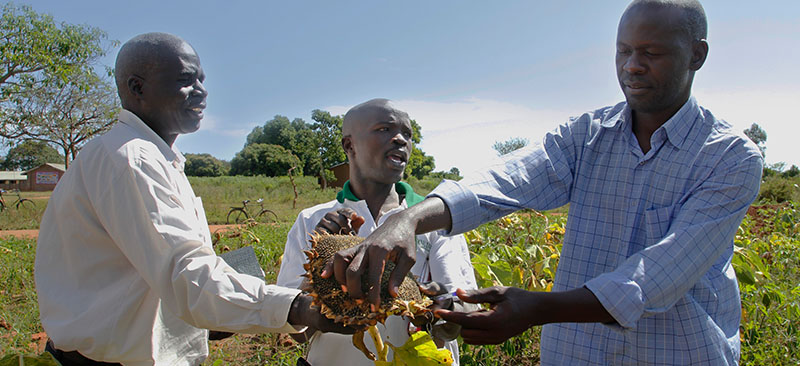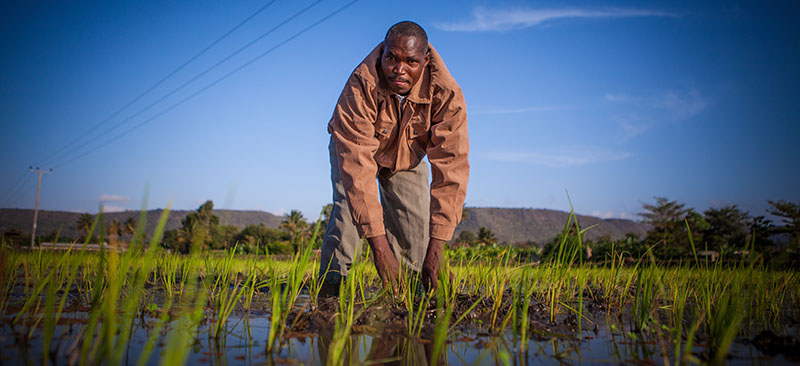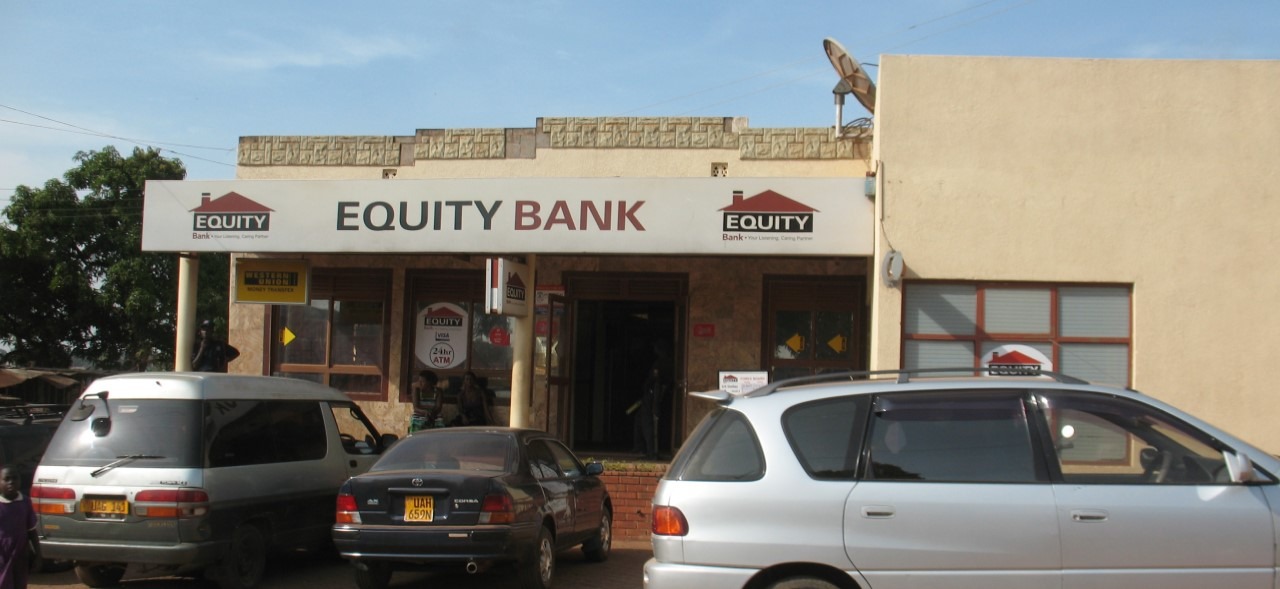
MSC developed and implemented agent banking strategies for three leading banks in Uganda—Stanbic Bank, Centenary Bank, and DFCU. This intervention increased the financial services outreach of the banks to the untapped remote areas of Uganda. MSC provided technical assistance support to design the strategy and business case, channel development and implementation, and agent network development and management. The MSC team also worked on marketing and communications, behavioral research, pilot testing and evaluation, and the design and implementation of the rollout of agent banking.
MSC’s support helped the institutions to speed up the launch of agent banking with strategic business cases and approval from the Bank of Uganda. At the time of writing, these institutions had realized significant benefits in the 10-month period. By the end of 2018, more than 2,600 agents had registered and thousands of customers had accessed the banking services through the agent channel. The three banks had processed a cumulative 2.9 million transactions with a value of UGX 1.4 trillion (USD 400 million).

MSC’s intervention took place in three Indian states—Uttar Pradesh, Kerala, and Odisha. The intervention helped to increase the penetration of bank accounts from 80% to 95% in target locations within five months.
After the intervention, 100% bank accounts in the target locations were Aadhaar– and mobile number-seeded—a prerequisite for doing digital Aadhaar-enabled transactions. In the state of Odisha, mobile number linkage to bank accounts increased from 12% to 91%. During the process, customers conducted their first digital transaction. At an overall level, digital transactions increased by 30-35% within five months.
In Ramnagar city of Varanasi district in Uttar Pradesh, MSC worked on strategy and implementation plan for transforming Ramnagar into a less-cash village. We increased awareness of the BHIM application and *99# (USSD) by multiple times (from five to 150 merchants). MSC helped to onboard 20 new merchants on BHIM and another 20 merchants on Paytm to accept payments digitally. MSC helped 9% of the weavers receive their salaries digitally in their bank accounts.

MSC worked with Strategic Impact Advisors (SIA) to assess and diagnose the opportunities and challenges in growing a robust agent acceptance infrastructure for digital financial services (DFS) in Liberia and Sierra Leone. This infrastructure would build the capacity and liquidity to support digital payment use for G2P and other bulk payment streams, and in the process create opportunities for agents. MSC’s technical teams worked closely with individual providers in these two hard-to-reach markets. We provided technical assistance, set up agent management systems, and supported operational activity.
As a direct result of MSC’s program activities, DFS providers in Liberia were able to increase agent outlets and set up a more efficient liquidity management system. In five years, they channeled an average transaction volume of USD 180,000 per month through each super-agent from a base of zero super-agent activity. In Sierra Leone, our team assisted providers to exponentially grow their agent networks by over 50% across target geographies within the country in five months and improve active agent rates by over 130%.

USAID commissioned MSC to provide technical assistance to refine and reposition Britam’s microinsurance product line. UNCDF engaged MSC based on our sound market understanding and best practices worldwide. The MSC team conducted a situational analysis of microinsurance at Britam, performed market and behavioral diagnoses, directed concept distillation, and created a product and strategic business case by pilot testing and refining products. We drafted specific market and communication strategies followed by an implementation framework.
Prior to MSC’s intervention, Britam made recurring losses on its microinsurance portfolio. After our advisory and technical assistance, Britam achieved an operational breakeven in 2016 and made a small profit on the microinsurance portfolio. As of the end of 2017, it increased annual profits on its microinsurance portfolio to KES 79 million (USD 0.79 million). By the end of July, 2018, Britam served over 550,000 low-income customers.

Root Capital contracted MSC to assess the market for wholesale lending and advisory in Kenya, Rwanda, Uganda, Tanzania, and Zambia. Root Capital is a non-profit social investment fund that provides wholesale lending and advisory services to agricultural enterprises. The organization envisions a thriving financial market that serves agricultural businesses—thus generating long-term social, economic, and environmental sustainability for small-scale farmers and their communities around the world.
As part of the assignment, MSC identified the nature and scope of constraints that last-mile agricultural businesses face in terms of access to finance. MSC provided key insights into their needs and aspirations. We also conducted a landscape mapping of financial institutions and other finance distribution channels, such as input suppliers or equipment leasing companies, to assess the state of supply of financial services to the segment. Based on the mapping activity, MSC developed products for either wholesale capitalization or advisory services to entities that can lend to agricultural businesses in the last-mile segment.
MSC created recommendations on the design of the business model based on partnerships with existing financial institutions. We also developed the wholesale lending products for these financial institutions to foray into financing agricultural enterprises. At the time of writing, in line with MSC’s recommendations, Root Capital had started financing the segment through a partnership approach in Kenya. Root Capital had also been implementing the strategy to replicate the approach in Rwanda, Uganda, Tanzania, and Zambia in the period 2018-2020.

MSC has provided technical assistance and advisory services to Equity Bank since 2001. Our key services to the bank on products and channel development include:
- Agency banking channel: We developed a new agent management system; re-engineered the business processes and risk analysis of the entire agent network channel; set up a system for customer and channel satisfaction measurement and management; and prepared a strategic marketing approach to optimize marketing and communications for the agent network.
- Product development and rationalization: We conducted market research and segmentation to understand the use of Equity Bank’s services by its customers; rationalized the existing, over-complex savings, credit and insurance product suites; assessed the potential for delivering the simplified product suite through various channels—branches, agents, and self-service by clients using mobile phones; and prepared a suite of new digital savings products, specifically for delivery through the agent network and client self-service.
As a result of our support, the bank has deepened financial inclusion and broadened access for users. There has been a significant growth in depositors and deposits as well as borrowers and loan book for the bank. By the first quarter of 2018, over 97% of the bank’s transactions occurred outside its branches and 70% were self-service. The use of alternate delivery channels improved the cost-to-income ratio from 47.1% in 2015 to 44.8% in 2016.





